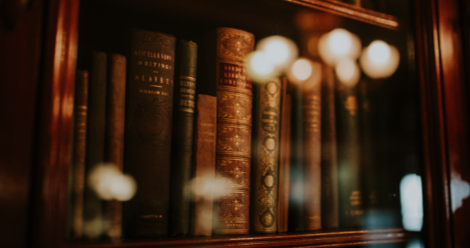
Finding the Right Time for the Classics
Every book has the right time and place in one’s life; this is a belief I have always firmly held on to. I grew up in a household of readers, where books were always present and loved, and spent hours pouring over anthologies of fairytales—from the Brothers Grimm through Pushkin to the Arabian Nights and beyond—and children’s classics. I fell asleep to my father reading fairy tales and Bulgarian children’s books full of humor and misadventure. As I got older, mom and I would spend weekends at Barnes and Noble, reading and sipping hot beverages. No matter how many books I have read (and still read), however, there is one category I somehow managed to stay away from: the Classics, or, the Western Canon.
As a teenager, works like Pride and Prejudice were mostly known to me from the little screen and word of mouth. If anyone asked if I had read Oliver Twist, I smiled and answered in the affirmative, despite only having watched the musical.
Then, in the summer after my high school graduation, I decided to dabble a little bit. It was 2012. Woody Allen’s Midnight in Paris had recently come out, and I was obsessed with the Lost Generation. I had read Hemingway’s short stories in Senior Year and loved them; the follow-up was The Great Gatsby. I am not sure why I chose it, exactly (the 2013 Baz Luhrmann movie was not even advertised yet at that point). I suppose it just seemed slim and nonthreatening enough. In retrospect, I could not have chosen a better book.
The day I graduated, a freak storm hit my hometown. As a result, we did not have power for several days. In June, in Virginia, that means drinking a lot of water, taking multiple cold showers, and fanning yourself incessantly with a paper fan. But, coincidentally, I was having the same experience as Nick Caraway. His constant complaints about the heat and humidity of New York in the summer of 1922 resonated. Here it was, the connection I needed with this book! I read it at lightning speed. The Great Gatsby had found me at the right juncture of my life, and so it was easy and really pleasurable to read it.
This is just one example of reading a book at what felt like the right time—a phenomenon that is probably familiar to any reader, and one that I continue to experience. But if the Gatsby incident taught me something, it is that there is not a particular time in life when one should read the literary canon. Many will encounter these famous titles through their high school English and college literature classes, but just because they are a part of the curriculum, it does not mean that this is the point in an individual’s life these works are specifically designated for.
Most recently, over the holiday season, I read Little Women, which was described to me as the perfect holiday read. When the right time arrives, I dive into these books with enthusiasm. In the end, it does not matter how old or at what stage of your life one is (nor, for that matter, how many Classics one reads). What should matter is the joy of the experience—an experience which takes place at just the right moment in the reader’s life—and the joy of sharing and discussing these works of literature with others (judgement-free!).















